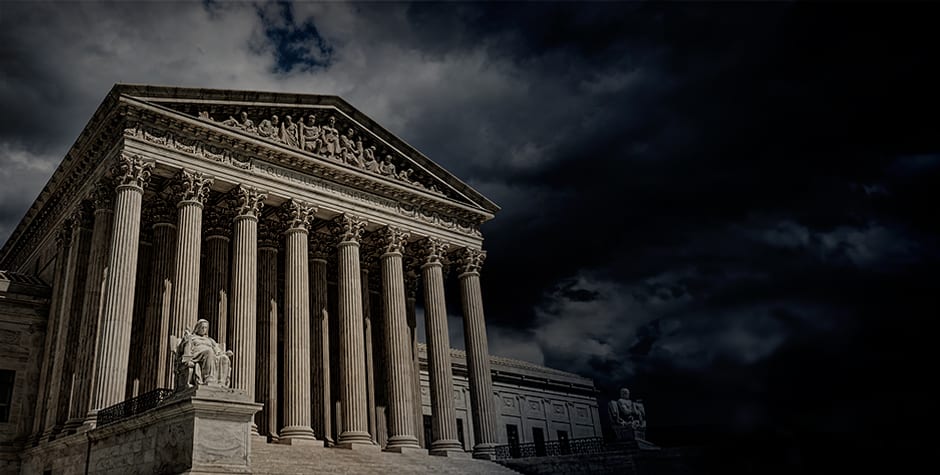ACLJ Files Major Brief Representing Colorado GOP in Biggest Election Case in U.S. Supreme Court History, Defending Right To Vote
We have just filed one of the most important briefs in our history, defending your right to vote for the candidate of your choice at the U.S. Supreme Court. From the beginning of these lawsuits, we represented the Colorado Republican Party and many other Republican Parties across the country in the fight against these attempts to misappropriate the 14th Amendment to keep voters from choosing the candidates of their choice. With our new brief to the Supreme Court, these cases have reached the highest Court in the land.
In Trump v. Anderson, the Supreme Court will determine whether the Colorado Supreme Court erred by removing former President Trump from the presidential ballot and preventing the Republican Party from having the chance to select him as a presidential candidate. We represent the Colorado Republican Party, a party in the case, and are defending at the Supreme Court the Colorado Republican Party’s right to freely select its own presidential candidates.
We just filed our first of two major merits briefs in the case. At the beginning of February, we will have another opportunity to file a reply brief to any arguments that those seeking to remove President Trump from the ballot will make. Today was our opportunity to make our own arguments, explaining to the Supreme Court why the Colorado Supreme Court lacked any authority to remove President Trump from the ballot. We filed on an abbreviated schedule, with only about a week and a half from when the Supreme Court decided to take the case to write and prepare our brief.
There are many reasons why the novel theories the Colorado Supreme Court has adopted are irreconcilable with the law. In our brief, we focused on four:
- First, the President is not an officer of the United States to whom Section Three of the Fourteenth Amendment applies.
- Second, Section Three is not self-executing; that is, Section Three does not, absent congressional implementation, empower the fifty states and the District of Columbia each to veto national presidential candidates in their separate jurisdictions.
- Third, Section Three only applies to holding office, not running for office. Congress can remove any Section Three disqualification, which means Section Three provides no absolute obstacle to a particular candidate holding office, much less running for that office.
- Fourth, barring political parties from choosing their own candidates violates the right of association protected by the First Amendment.
We expect former President Trump’s legal team to advance other additional arguments for reversing the decision of the Colorado Supreme Court. There are a host of legal reasons why the Colorado Supreme Court’s decision cannot be sustained. Never before has a former President been removed from the ballot, and there is a reason. In our brief, we have shown how precedent and history confirm that Section Three doesn’t even apply to the President and how Section Three cannot be applied on a whim by a state. Secretaries of State lack the authority to decide for themselves that a candidate is disqualified for “insurrection.” Moreover, Section Three only prevents people from holding certain offices. It says nothing about whether they can run for office.
There are many complex and complicated legal questions the Supreme Court will wrestle with in this case, but the central issue is much more straightforward. The question at the heart of this case is whether the people or the courts will select our country’s next President. We are urging the Supreme Court to ensure the decision remains with the people – where it belongs.
